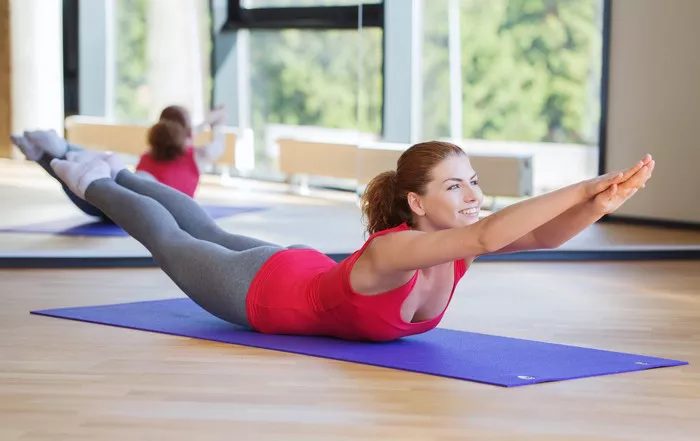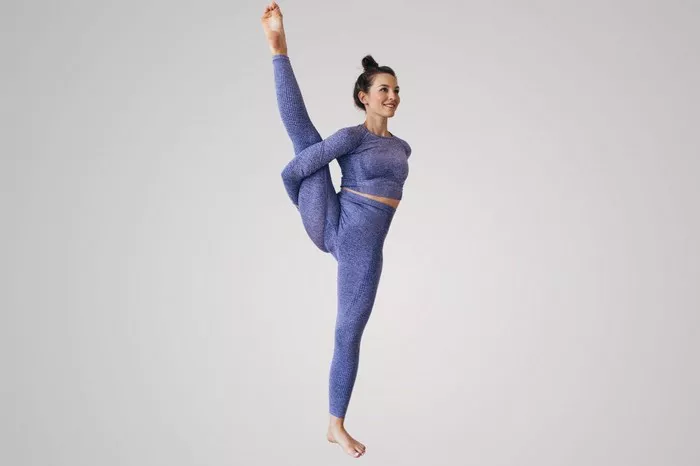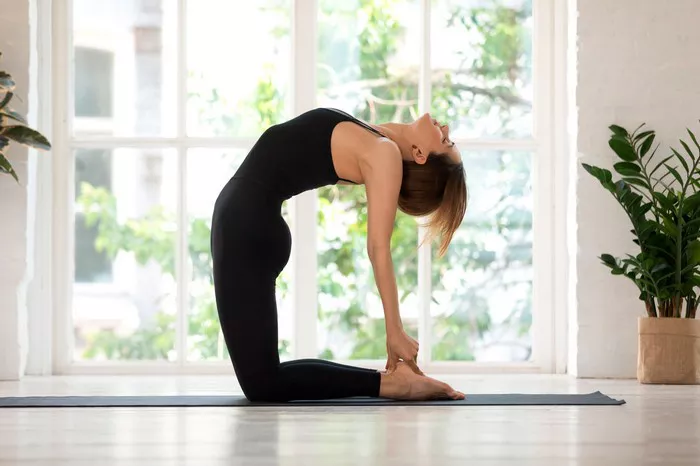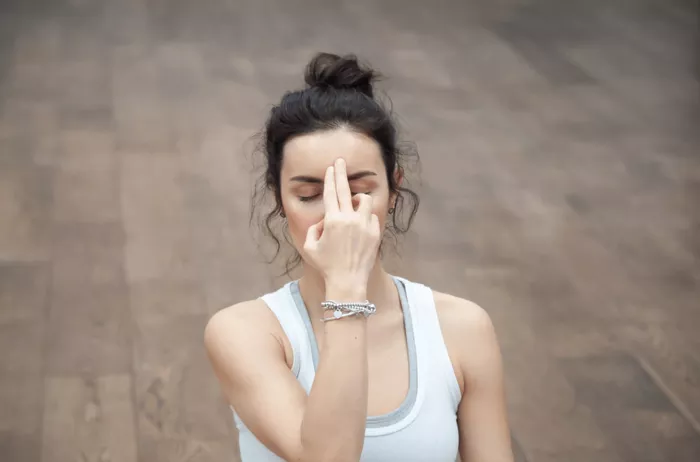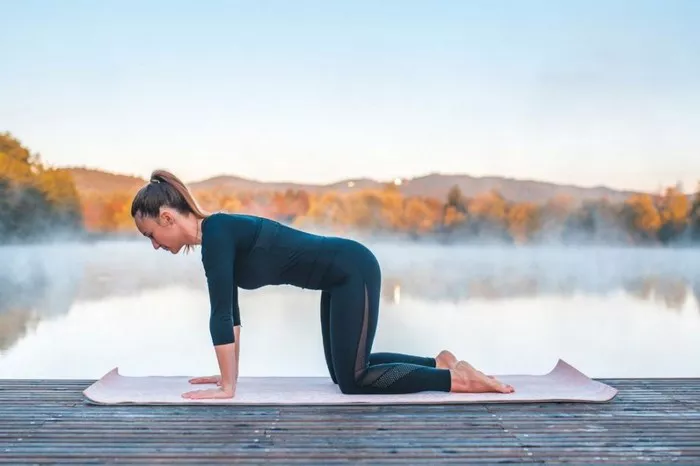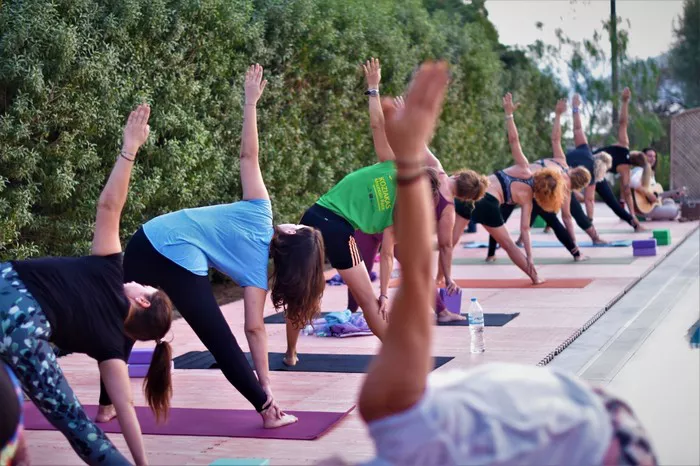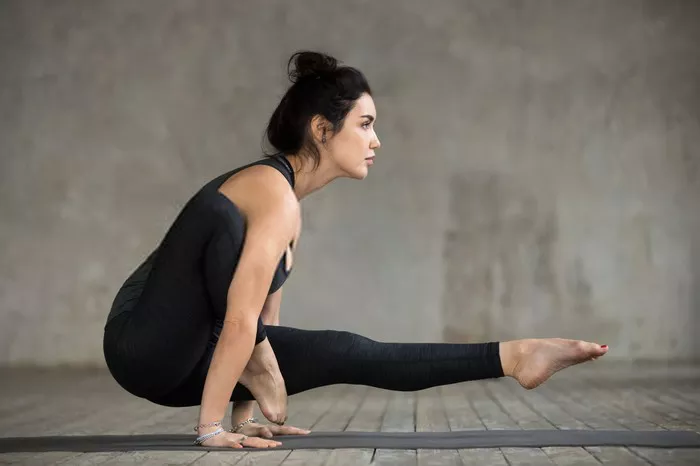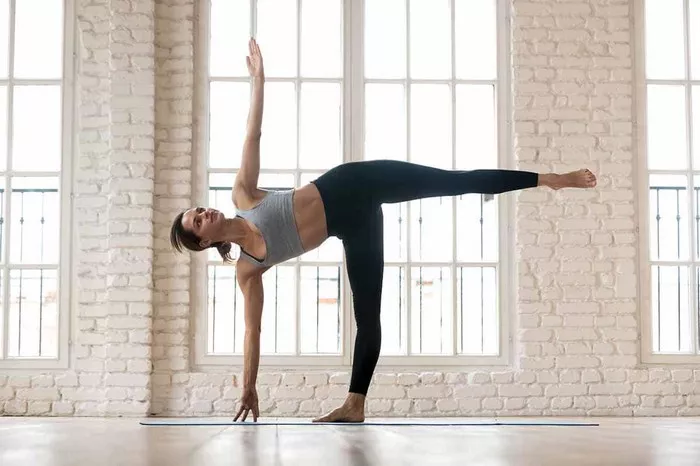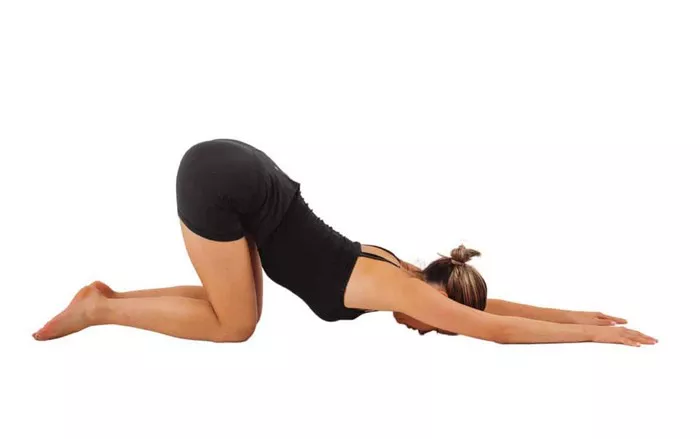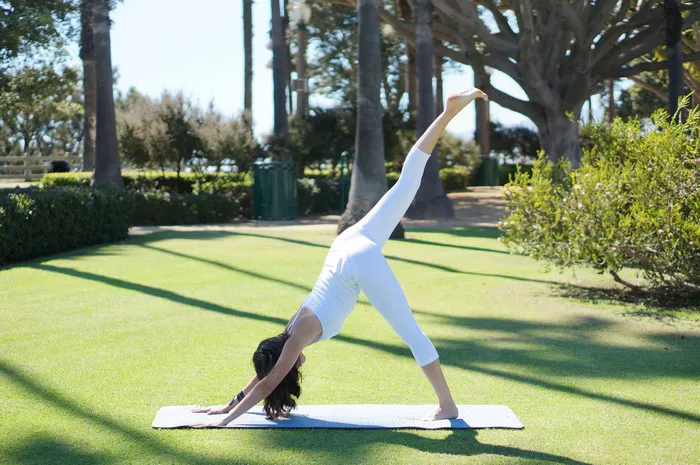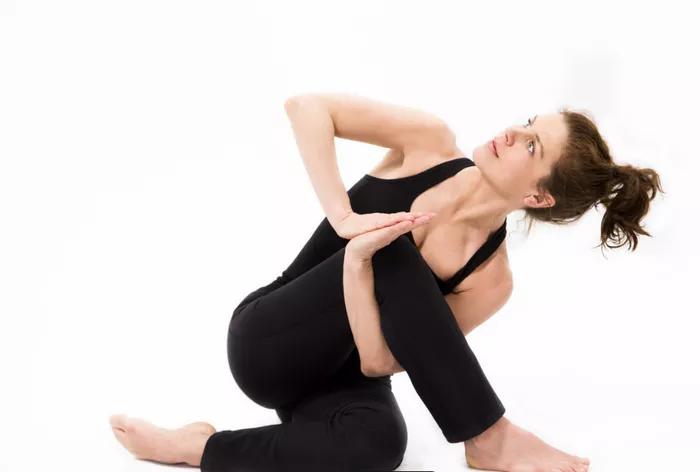Yoga is often celebrated for its physical benefits, but its positive impact on mental health is equally profound. In today’s fast-paced world, mental well-being has become a major concern. From stress and anxiety to depression and sleep disorders, mental health issues are widespread. Yoga offers a holistic approach that can improve emotional well-being, reduce stress, and increase mindfulness. By incorporating specific yoga poses, you can foster a more balanced and calm mind.
In this article, we will explore how yoga poses benefit mental health. We will also highlight specific postures that can help alleviate stress, reduce anxiety, improve mood, and promote emotional balance.
What is the Connection Between Yoga and Mental Health?
Yoga is more than just physical exercise. It is a discipline that connects the body, mind, and spirit. The ancient practice of yoga is built on four key principles: postures (asanas), breathing (pranayama), meditation (dhyana), and ethical living (yamas and niyamas).
Yoga helps calm the nervous system, reduce the effects of stress, and increase mental clarity. It achieves this by using movement and breath to shift the body out of a state of tension and into a more relaxed, mindful state. When practiced consistently, yoga can rewire the brain, improve emotional regulation, and even enhance the way we cope with stress.
The Science Behind Yoga’s Impact on Mental Health
Research has shown that regular yoga practice can have a significant effect on mental health. One of the key mechanisms through which yoga works is through the activation of the parasympathetic nervous system, often referred to as the “rest and digest” system. By engaging in deep breathing exercises and mindful movement, yoga helps lower cortisol levels (the stress hormone) and stimulates the production of serotonin, dopamine, and GABA—neurotransmitters associated with happiness and relaxation.
Studies also suggest that yoga can help reduce symptoms of anxiety, depression, and PTSD (Post-Traumatic Stress Disorder). Furthermore, yoga has been shown to improve sleep quality, reduce the frequency and intensity of panic attacks, and enhance overall emotional resilience.
Which Yoga Poses Are Best for Mental Health?
There are many yoga poses that can help manage mental health issues, whether you’re dealing with stress, anxiety, depression, or simply looking to improve your overall mood. Below, we will highlight some of the most effective yoga poses for mental well-being.
1. Child’s Pose (Balasana)
Child’s Pose is a grounding and restful posture that promotes relaxation and stress relief.
In this pose, you kneel on the floor, sit back on your heels, and extend your arms forward, resting your forehead on the mat. The position of the body allows for deep breathing and helps to calm the nervous system.
Mental Health Benefits: Child’s Pose encourages surrender and release. It is a powerful posture for calming the mind, reducing anxiety, and promoting a sense of safety. It can help release tension in the neck, back, and shoulders, areas where stress commonly manifests.
How to Practice:
Start on your hands and knees in a tabletop position.
Lower your hips toward your heels, resting your forehead on the mat.
Stretch your arms out in front of you, palms down, or place them by your sides with palms facing up for extra relaxation.
Stay here for 3 to 5 minutes, focusing on your breath.
2. Downward-Facing Dog (Adho Mukha Svanasana)
Downward-Facing Dog is an energizing pose that helps clear mental fog and improves focus.
This pose involves an inverted V-shape, with the hands and feet grounded on the mat and the hips lifted toward the sky. It stretches the whole body, enhances circulation, and promotes mental clarity.
Mental Health Benefits: This posture encourages a shift in perspective, both physically and mentally. By bringing the head below the heart, it helps to calm the mind, alleviate stress, and promote a sense of focus and alertness.
How to Practice:
Start on your hands and knees, with your wrists aligned under your shoulders and your knees under your hips.
Press into your hands, lifting your hips toward the ceiling and straightening your legs.
Hold the position for 5 to 10 breaths, relaxing into the stretch.
Keep your head between your arms, with your gaze directed toward your thighs or feet.
3. Cat-Cow Pose (Marjaryasana-Bitilasana)
The combination of Cat and Cow poses creates a dynamic flow that releases tension from the spine and promotes emotional release.
This movement involves alternating between arching the back (Cow Pose) and rounding the back (Cat Pose), coordinated with the breath. It is typically practiced in a tabletop position on hands and knees.
Mental Health Benefits: The fluid movement between Cat and Cow stimulates the nervous system and helps release emotional tension. It can ease symptoms of stress, anxiety, and even depression by allowing the practitioner to focus on the breath and the present moment.
How to Practice:
Begin in a tabletop position, with your wrists aligned under your shoulders and knees under your hips.
Inhale as you arch your back, lifting your chest and tailbone toward the ceiling (Cow Pose).
Exhale as you round your back, tucking your chin toward your chest and drawing your navel toward your spine (Cat Pose).
Repeat for 1 to 2 minutes, synchronizing your breath with the movements.
4. Seated Forward Fold (Paschimottanasana)
Seated Forward Fold is a deeply calming pose that helps relieve tension and soothe the mind.
In this posture, you sit with your legs extended straight out in front of you and fold forward from the hips, reaching for your feet or ankles. This pose stretches the hamstrings, spine, and lower back.
Mental Health Benefits: This forward fold encourages introspection and calm. It stimulates the parasympathetic nervous system, reducing stress and anxiety. It is also known for its ability to alleviate symptoms of insomnia and depression by promoting deep relaxation.
How to Practice:
Sit on the floor with your legs extended in front of you, feet flexed.
Inhale and lengthen your spine, sitting up tall.
Exhale as you hinge from your hips and fold forward, reaching for your feet or ankles.
Hold for 5 to 10 breaths, breathing deeply into your back and sides.
5. Legs-Up-the-Wall Pose (Viparita Karani)
Legs-Up-the-Wall Pose is a restorative posture that helps promote relaxation and reduce stress.
This pose involves lying on your back and placing your legs up against a wall, with your arms relaxed by your sides or placed in a comfortable position.
Mental Health Benefits: This gentle inversion helps to calm the nervous system, reduce stress, and promote mental clarity. It is particularly useful for those suffering from anxiety, as it helps activate the body’s relaxation response and can even help reduce insomnia.
How to Practice:
Sit with one side of your body against a wall.
Slowly lie back and swing your legs up onto the wall, keeping your body in an L-shape.
Relax your arms by your sides or place them on your belly or chest.
Stay in the pose for 5 to 10 minutes, focusing on your breath and relaxing your body.
How Yoga Poses Help with Specific Mental Health Issues
Different yoga poses address specific aspects of mental health. Here, we will discuss how yoga can help with some common mental health concerns.
Yoga for Stress Reduction
Stress is one of the most common mental health challenges today. Yoga offers tools to manage and reduce stress by calming the nervous system and promoting mindfulness. The slow, intentional movements and deep breathing in yoga help trigger the body’s relaxation response, reducing the production of cortisol and creating a sense of peace.
Recommended Poses: Child’s Pose, Seated Forward Fold, and Legs-Up-the-Wall Pose are especially effective for stress relief. These poses allow for deep relaxation and the release of pent-up tension.
Yoga for Anxiety and Panic Attacks
Yoga can help reduce anxiety by encouraging the body to focus on the breath, which can calm the mind and prevent racing thoughts. Certain poses, such as Downward-Facing Dog and Child’s Pose, can trigger a sense of safety and relaxation, which are key when dealing with anxiety.
Recommended Poses: Downward-Facing Dog, Child’s Pose, and Cat-Cow Pose are helpful in relieving symptoms of anxiety. Focusing on the breath while holding these poses can also provide emotional grounding during an anxious moment.
Yoga for Depression
Yoga helps reduce the symptoms of depression by promoting the release of endorphins and serotonin, two neurotransmitters that boost mood. The mindful movements and emphasis on breathwork can improve the connection between the body and mind, which is essential for emotional healing.
Recommended Poses: Seated Forward Fold and Legs-Up-the-Wall Pose help with releasing tension in the body and promoting a sense of calm, which can be helpful for those dealing with depression.
See Also: What Are the Best Sitting Yoga Poses for Relaxation and Flexibility?
Tips for Starting a Yoga Practice for Mental Health
Starting a yoga practice focused on mental health doesn’t require previous experience. Here are some tips for beginners:
Start Slow: Begin with gentle poses and short sessions. Gradually increase the intensity and duration as you feel more comfortable.
Focus on Your Breath: Breathing is at the core of yoga practice. Pay attention to your inhales and exhales to stay grounded and present.
Be Consistent: The mental health benefits of yoga are most noticeable when practiced regularly. Aim for at least 3 to 4 times a week.
Create a Calm Environment: Practice yoga in a quiet, comfortable space where you can fully focus on your breath and movement.
Conclusion
Yoga offers a holistic approach to improving mental health. Through its combination of physical postures, breathwork, and mindfulness, yoga has the power to reduce stress, alleviate anxiety and depression, and promote emotional balance. By incorporating specific poses into your daily routine, you can experience the mental health benefits of yoga and create a deeper connection between your body and mind.
Remember, yoga is not a quick fix but a long-term practice. With consistency and patience, yoga can become a powerful tool in your journey toward better mental health.
You Might Be Interested In



